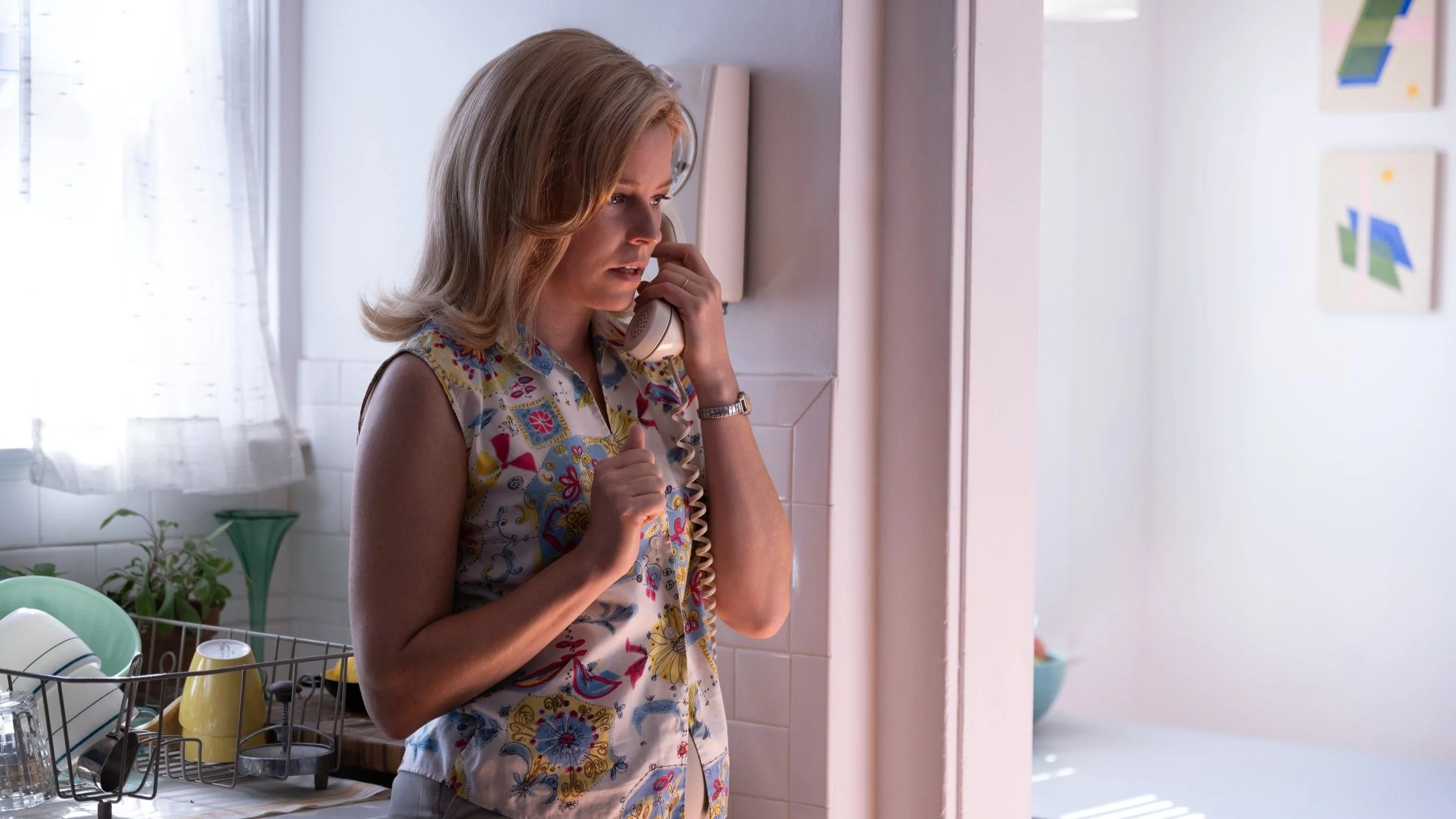Call Jane
Elizabeth Banks plays a suburban 1960s’ American housewife who finds herself with an unwanted pregnancy.
Just call my name: Elizabeth Banks
Phyllis Nagy, an American who was for some time based in England, is best known as a playwright although she directed a TV movie in 2005. Until now her contribution to cinema has consisted only of her much-admired screenplay for Carol, the 2015 adaptation of Patricia Highsmith's novel The Price of Salt. Her latest film work, Call Jane, finds her in a different role, that of director, and, while she did not write it (that was the work of Hayley Schore and Roshan Sethi), there is no doubt about the depth of her commitment. Call Jane is set in Chicago in 1968 but, despite its period setting, this is a film about abortion as a human right and as such it is clearly timed for screening now given that this issue is so deeply relevant today, especially in America.
Given the sincerity behind the film, it is sad to find it a far less effective piece than one would have hoped. Being a writer herself, it is perhaps surprising to find Nagy taking on this venture when the screenplay so often lacks conviction while also underplaying the tension that the story requires. Potentially though, there is plenty of dramatic promise in the material. The film has a factual background in its portrayal of a group of women and a charismatic leader who, at a time when abortions were illegal, set up a dedicated service to aid women who needed help in this way. They called themselves the Jane Collective or just the Janes (hence the title of this film) and in fact a documentary about them has just been made which is, one hopes, more successful than Call Jane.
Renamed Virginia and played by Sigourney Weaver, the leader of the group is portrayed here in ways that echo her real life equivalent, but the film’s main character, Joy Griffin (Elizabeth Banks), is wholly fictional. However, the story designed for her is by no means inappropriate. It first shows her as a wife and mother who, becoming pregnant again, learns that if she gives birth the likelihood of congestive heart failure will reduce her chance of survival to 50%. Seeing a poster that invites women to Call Jane for help, she does so and secretly has an abortion (her husband Will, played by Chris Messina, is a lawyer who would not wish her to break the law). Thereafter, the film shows how she is drawn into helping the Janes and then into taking an increasingly important role in what they do. She does this despite the fact that she is dubious about the man they employ as an abortionist and who charges handsomely for his services (this role is taken by Cory Michael Smith).
But, if Joy’s character arc seems reasonable enough in its general outline, the details keep raising doubts. However, even before that becomes apparent, the initial scenes of the film suffer from inert direction and what seems like a misjudged attempt to bring more life to the proceedings through the use of music (this ranges from drumming sounds designed to build up a sense of drama to a number of songs on the soundtrack). The tale simply becomes improbable when we are asked to accept that both Joy's husband and their teenage daughter (Grace Edwards) believe that she is at art classes every time that she rushes off to help with the Janes. Still unsuspected by her family, she not only assists the abortionist but turns out to have the skills necessary to carry out abortions herself (she reaches a total of no less than twenty in a week!). And, although the risk of being discovered and arrested must be acute, the film chooses to downplay this entirely. What it does find time for is to flirt with the possibility of the neglected Will being drawn into an affair with their neighbour (Kate Mara), a thread which it then drops undeveloped rendering its inclusion pointless. Having indicated that both husband and daughter are greatly disturbed when they eventually discover what is going on, the film finds then doing a volte face to provide a happy ending.
The cast of this film deserved better, not least the sympathetic Wunmi Mosaku as an activist with a special concern for the situation of black women and Weaver who brings real authority to the role of the leader. It is the case that Call Jane avoids the trap of preaching too much in a propagandist way, but its failure to convince drastically undermines its impact. Its many shortcomings are all the more obvious because earlier this year we saw another film about abortion, the French drama Happening, and that, a work without a single false note, stands as one of the very best cinema offerings of 2022.
MANSEL STIMPSON
Cast: Elizabeth Banks, Sigourney Weaver, Chris Messina, Wunmi Mosaku, Kate Mara, Cory Michael Smith, Grace Edwards, Evangeline Young, Kristina Harrison, Rebecca Henderson, Aida Turturro, Alison Jaye.
Dir Phyllis Nagy, Pro Claude Amadeo, Robbie Brenner, Lee Broda, Michael D’Alto, Kevin McKeon and David Wulf, Screenplay Hayley Schore and Roshan Sethi, Ph Greta Zozula, Pro Des Jona Tochet, Ed Peter McNulty, Music Isabellą Summers, Costumes Melissa Desrosiers and Julie Weiss.
Ingenious Media/FirstGen Content/LB Entertainment/Our Turn Productions/Redline Entertainment-Vertigo Releasing.
121 mins. USA. 2022. US Rel: 28 October 2022. UK Rel: 4 November 2022. Cert. 12A.


